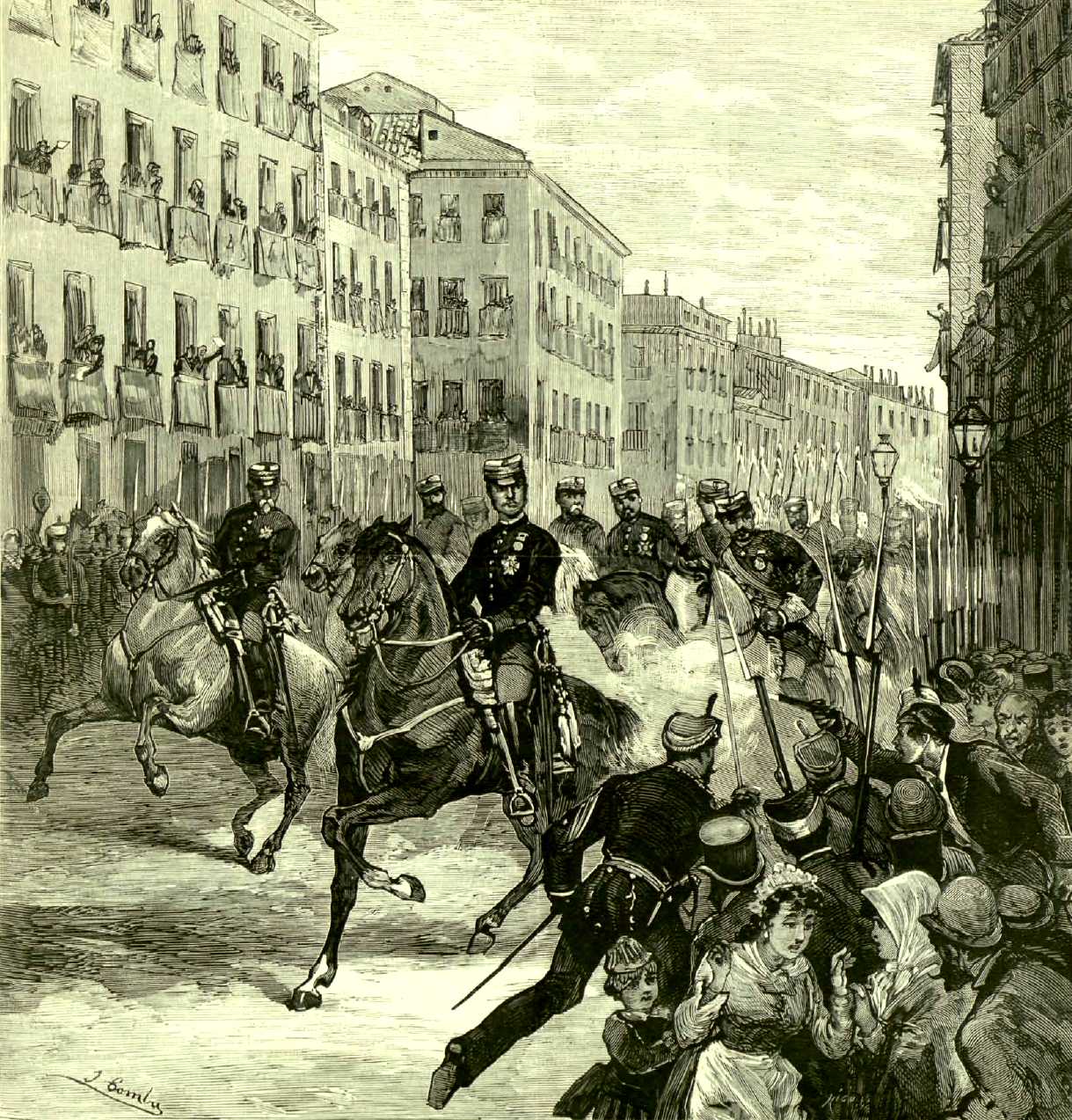
When former U.S. President Ulysses S. Grant visited Europe on a post-presidential world tour in the late 1870s political terrorism was in its nascent stage. The International Workingmen’s Association (or First International) split in 1872 between anarchist and statist factions and disbanded in 1876. After that, violence against heads of state increased.[1]
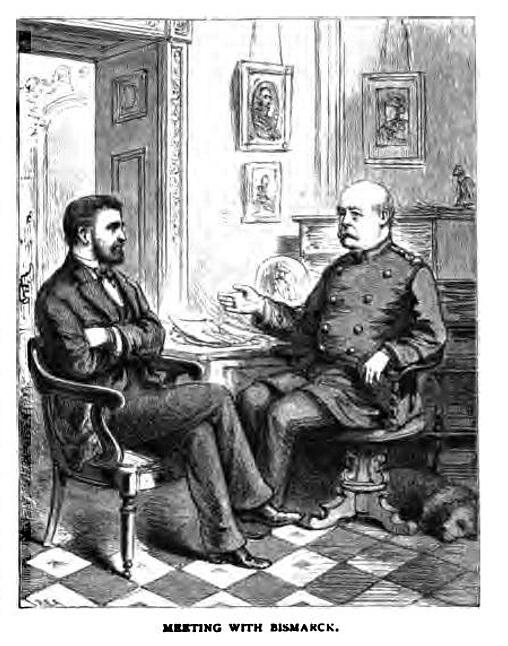
Grant’s world-tour biographer John R. Young described Paris: “The boulevards might throng… all the currents of life, society, business, and pleasure might be rushing on; still, in an instant there might come revolution and anarchy.” Spain was particularly volatile – as it was suffering from years of turmoil stemming from the Third Carlist War and was a hotbed of communist and anarchist groups. When Grant arrived in October of 1878, he eagerly met the former First Spanish Republic President Emilio Castelar:
The General thanked Mr. Castelar for all that he had done for the United States, for the many eloquent and noble words he had spoken for the North, and said he would have been very much disappointed to have visited Spain and not met him; that there was no man in Spain he was more anxious to meet. […] Castelar’s Presidency was a tempest with Carlism in the north, and communism in the south, and the monarchy everywhere. How he held it was a marvel, for he had no friend in the family of nations but America…[2]
A General Meets a Young King
Due to political sensibilities the “question of how to receive an Ex-President… has been the source of tribulation in most European cabinets,” but King Alfonso XII cordially met Grant in Vitoria.
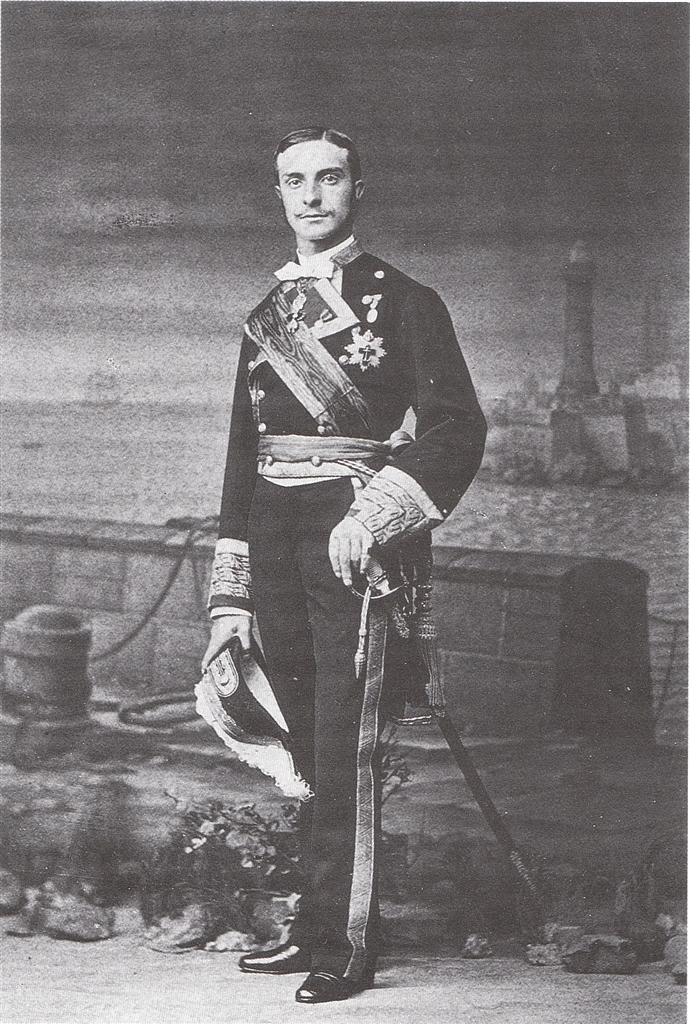
“The King said he was honored by the visit of General Grant…” Alfonso was also quoted as saying “he had read all about him, his campaigns and his presidency, and admired his genius and his character.” Grant expressed his admiration for Spain and offered his condolences on the sudden death of Queen Mercedes that summer:
His marriage had been one of love, not of policy. …No one knew what a help she had been in combating the difficulties of the situation, for it was no pleasure to be an executive – no easy task. …To this the General answered that he had had eight years of it, and they were the most difficult and burdensome of his life. […] One was twenty years of age, the other fifty-six; but… it seemed that the younger of the two was the Ex-President.[3]
Attempted Assassination
After meeting Alfonso, Grant went to Madrid. On October 25, as the king rode in a procession down Calle Mayor, Juan Oliva Moncusí (Moncasi), a cooper from Tarragona, fired a shot at the king but “aimed too low” and hit the hand of a guard. “The king saw the flash, and… checked his horse momentarily. He then rode tranquilly toward the palace.” While being arrested, Moncasi “triumphantly declared himself a Socialist and Internationalist.” Grant was at the Hotel de Paris overlooking the Puerto del Sol plaza when the attack occurred.[4]
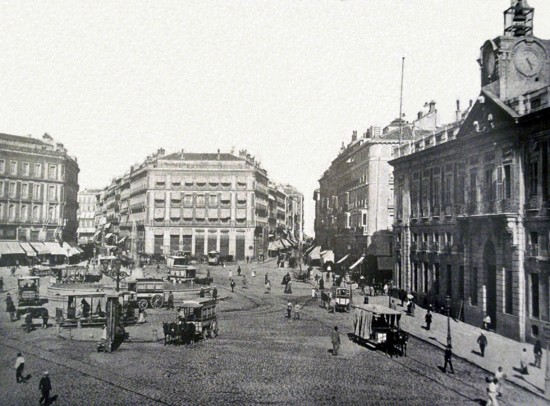
According to Young…
…a moment or two after the king, at the head of his troops, passed in front of the hotel, where General Grant and [U.S. Minister James R.] Lowell were standing on the balcony. His Majesty, in passing, waved to General Grant a gracious personal salute. A moment afterwards the shot was fired…[5]
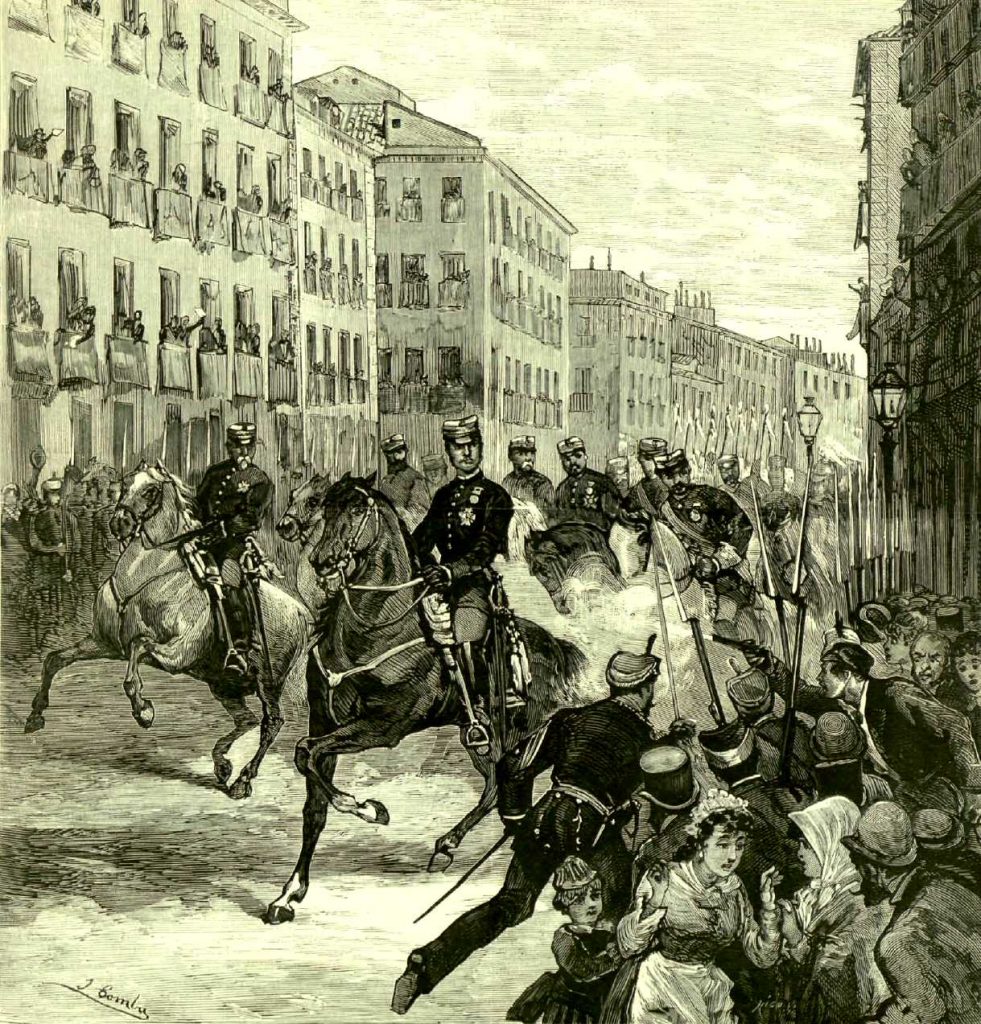
Renowned Spanish author and playwright Benito Galdós wrote that Moncasi was an Internationalist “fanatic; but with less overtones of madness than of foolishness.”
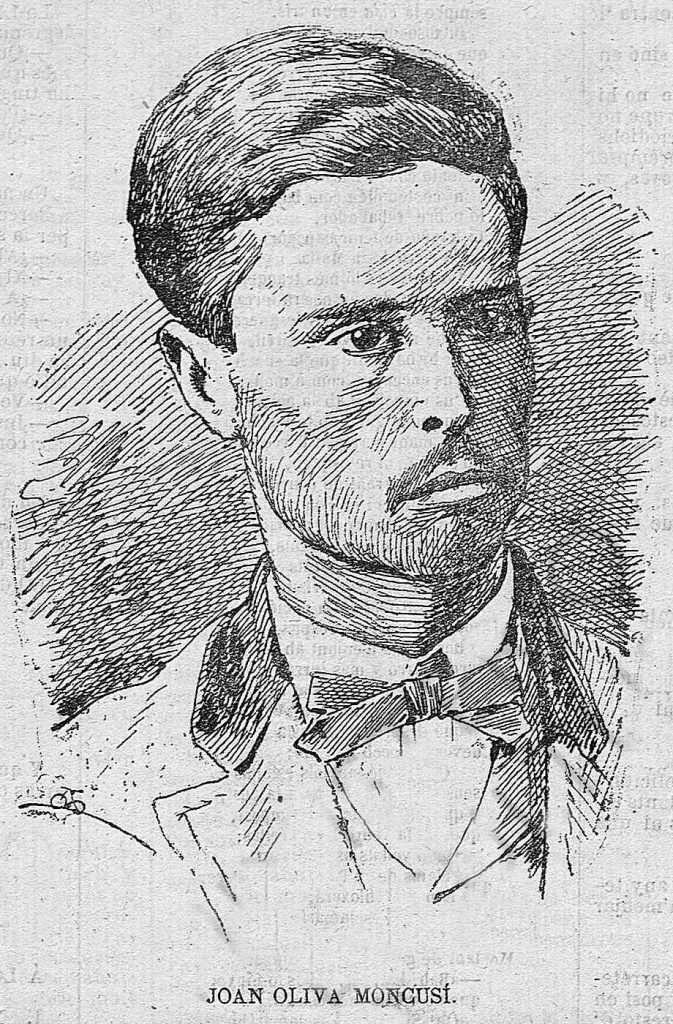
For the playwright, the assassination attempt represented “sugary tastelessness, even regicide was silly, bland, and not spicy. The unfortunate Oliva was spoken a little in those days, and a little when they garroted him in January the following year.”[6]
[1] Richard B. Jensen, “The Origins of Anarchist Terrorism.” In The Battle against Anarchist Terrorism: An International History, 1878–1934: 6–36 (Cambridge University Press, 2013).
[2] John Russell Young, Around the World with General Grant: A Narrative of the Visit of General U.S. Grant, Ex-President of the United States, Vol. 1 (New York: Subscription Book Department, 1879), 126, 526. See: Emilio Castelar y Ripoll, Historia del movimiento republicano en Europa (Madrid: Manuel Rodriquez, 1873), 750. The United States, “with their Sherman and their Grant, they have overshadowed the generals of the French Republic…” Castelar was ousted in 1874.
[3] Ibid. 525, 529-531.
[4] The Cincinnati Enquirer, October 28, 1878 (via New York Herald)
[5] Young, Around the World with General Grant, 532.
[6] Benito Galdós, Cánovas (Episodios Nacionales) (Madrid: Sucesores de Hernando, 1912), 202.
About the author
Benjamin J. Swenson has been living and working in Korea since 2008. His doctoral dissertation at Pompeu Fabra University (UPF) in Barcelona, Spain, covered Euro-American military and legal history, and the advent of guerrilla warfare and counterinsurgency doctrine in the nineteenth century. He is currently an Assistant Professor in the Department for Human Creativity at Hoseo University in Asan – where he lives with his wife and son. His hobbies include chess, painting, hiking, and bonsai.
2 thoughts on “General Grant Encounters Terrorism in Madrid: The 1878 Attempted Regicide of King Alfonso XII”